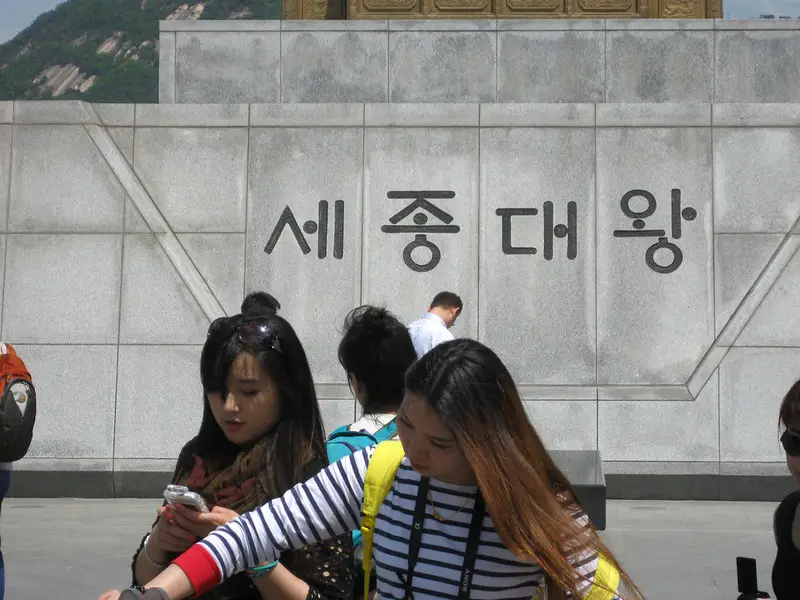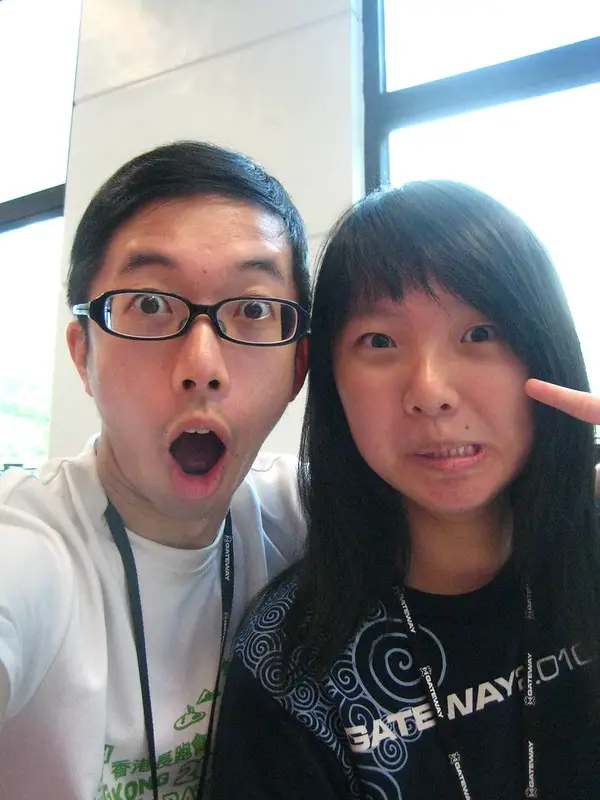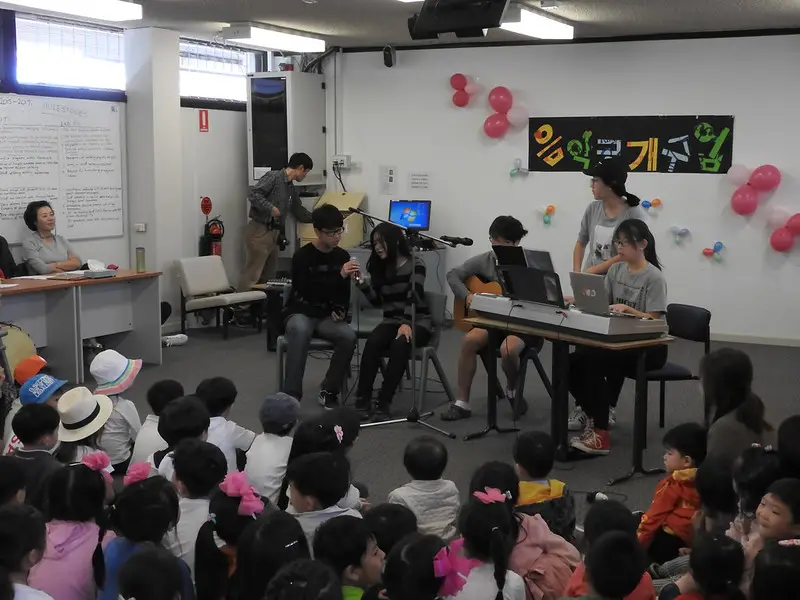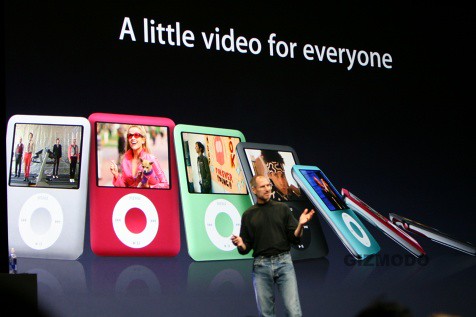Understanding how to read people’s thoughts and feelings has massive advantages. If you can determine the issues your boss is experiencing without even asking, you’re probably going to form a positive working relationship with her. Similarly, if you can predict what that guy with the nice dimples you continue coming across is thinking, you might be able to start a friendship and – who knows? – then perhaps something more than that.
Nunchi is a kind of emotional intelligence that can help you in every aspect of life. By teaching you how to concentrate and bring together information from watching others, it’ll make the way for you to form rich and satisfying relations. By doing that, it’ll take your professional and personal life to a completely new phase.

Chapter 1 – Nunchi is the subtle Korean art of reading other people’s emotions and feelings for you to form trust, harmony, and relationship.
Let’s assume you’ve only begun a new job and you have been invited to attend a work party, and you wish to make a great impression. You enter into the room and see that everybody is laughing at a not-particularly-funny joke spoken by an older woman you’ve never come across before. What will you do in this scenario?
If you possess great nunchi, you might predict that the woman saying the joke is significant, and most likely the boss –nevertheless, all the people around her is laughing at her poor joke. You’d then discover the first tactful time to present yourself to her.
Nunchi – the Korean art of determining other people’s thoughts and emotions from their action– is crucial to navigating difficult social circumstances. The word nunchi basically means “eye-measure” in Korean. It’s the skill to see or perceive your surroundings and to regularly recalibrate your assumptions based on changes in your surroundings.
A vital part of social life in Korea, nunchi is an art that grew out of that country’s exceptional history. Korea is located in the crossroads of the two Asian superpowers, Japan and China, and it has been attacked as much as 800 times. Still, in spite of this turbulent history, Korea has not just endured; however, it has also flourished. How? With the art of nunchi. Korea was really small to combat these big attacking empires; therefore, it had to welcome and work around them.

Between the years 1919 to 1945, when their country was colonized by the Japanese, for example, Koreans had to walk a fine line between satisfying their Japanese overlords and defending themselves and their culture by thoughtfully protecting Korean newspapers, non-Japanese religions and Korean instruction in schools.
Due to its significant contribution to Korean history and culture, nunchi is celebrated in Korean folk tales –like the one about the sixteenth-century “Korean Robin Hood” Hong Gildong. Hong utilized his nunchi to defeat a murder attempt, defeat a king, and then become king himself.
However, only because nunchi has its origins in Korean culture doesn’t signify that it cannot be used in other settings. In any culture, nunchi can assist you to pick a suitable romantic or business partner, assist you to progress at work and safeguard you from people who might wish to destroy you. Definitely, a professor of psychology at Kyungpook National University in Korea named Jeohong Heo, discovered that people who got high marks for nunchi abilities also had higher senses of self-esteem and contentment with life.
Therefore, for you to leave a happier life, think of accepting the subtle power of nunchi.
Chapter 2 – The room is a vital section for nunchi.
How do you describe a room? It’s a space that is enclosed which is surrounded by walls and a roof. It possibly has a door, and perhaps one or two windows. However, a room is much more than a physical space – it’s a social space as well.
When we talk about using nunchi in day-to-day life, the room is the vital unit. Meaning, the object of your observation shouldn’t be only one person – it has to be the whole room and how everybody is relating to it.
Ever been in a room when a person significant or well-known walks in? Even if you can’t view the door, or don’t recognize the person who just entered, you’ll instantly feel a difference. People might begin whispering to one other. Everybody might look in an exact way. These signs and reactions will make you observant to the fact that something has changed intensely. Sensing the room in this manner is an instance of nunchi in action.
All room has an ambiance as well, which can change and vary from moment to moment. Koreans have a term for this: boonwigi which is a room’s atmosphere or wellness level. Everybody adds something to this boonwigi. If a person behaves with no nunchi, then they reduce the whole room’s atmosphere.

Assuming you’re sitting with your friends, one of them has just told you that he’s been diagnosed with cancer. And another friend comes in and, looking at the sad faces, grins and asks, “Where’s the funeral at?” By talking in a manner that is out of tune with the room’s dull atmosphere, that person behaves without nunchi and forms awkwardness and embarrassment around a severe statement.
Although, nunchi isn’t only about talking or listening in the right manner and at the appropriate time. It’s also about reading the room in order for you to be able to engage in signs and behaviors that improve the room’s whole atmosphere.
The heroine of Virginia Woolf’s novel To the Lighthouse Mrs. Ramsay is an expert on this aspect of nunchi. She’s a perfect hostess who understands that all she needs to do to put a room with a good atmosphere is to light the dining room candles. The soft light brings people together. As if by magic, the room’s awkwardness and tensions change into affection and coziness.
You can learn so many things from Mrs. Ramsay’s low-key nunchi. By reading the room accurately, you as well can engage in simple signs that form a sense of togetherness, connection, and belonging.
Chapter 3 – Learning nunchi needs accepting the values of collectivism, understanding and “roundness.”
If a Korean child is on the line with her mother waiting for a buffet and she complains, “I’m hungry!” her mother is most likely to answer by saying, “Are you the only person in the world?”
In Korea, this is a normal parental answer to children who show impatience. It’s a scolding that shows the significance of collectivism, a value at the core of Korean culture, and of nunchi. In collectivism, no one either man or woman is an island. Everyone is part of a bigger group and need to behave accordingly, just like how bees act in concert to sustain their beehive.
Additionally to accepting collectivism, learning nunchi also needs you to nurture “roundness” over “jagged edges.” What does this really entail?
Roald Dahl’s children’s novel James and the Giant Peach demonstrates the concept well. In the novel, the little boy James travels around the world in a huge, mutant peach. At a point, the peach is invaded by sharks off the coast of Portugal. Luckily, it’s very huge and round for the sharks to put their mouths around, and the peach, as well as James, escape unharmed.

To learn nunchi, you need to endeavor to be “round” like James’s peach. Western culture compensates “sharp edges” – people who are pushy and who try to be different. But, having sharp edges, entails that others have something to hold onto and use against you. If you’re round –meaning, gentle, affable, and easygoing – your relations will be smooth and easy. You’ll be invulnerable to sharks.
Also, you have to nurture an understanding of how to apply nunchi. However, don’t mix understanding with empathy. The difference between these two terms can be summed up in a Korean proverb and an English one. When Koreans advise you to attempt and know things, they make use of the proverb “change locations and think.” This implies basically changing to see things from a different perspective.
The English equivalent is “put yourself in another person’s shoes.” The English expression entails more closeness – as exemplified in the form of wearing someone else’s shoes. However, how can you view things with accuracy and distance if you wear someone else’s shoes? That’s the issue with empathy. If you hold another person’s position really closely, you restrict your ability to recognize their issue and the broader context more accurately.
This is the reason why nunchi privileges understanding, or “changing location,” more than empathy.
Chapter 4 – The use of “stilling” – paying attentively to what other people are doing and discussing– is vital to nunchi etiquette.
It’s a rush hour. You’re waiting on a subway platform as the train stops. You rapidly check the train cars and see that while nearly all the trains are packed, one is totally empty. Something is wrong; maybe the car smells bad. Although there are a lot of empty seats there, you avoid it and jump into the next, more packed car.
In this case, although you’re surrounded by the hullabaloo and noise of rush hour, you participate in stilling –meaning, you pay attentively to your surroundings and the people around it.
The use of stilling is significant in learning the art of nunchi. It triggers a lot of the vital rules of nunchi etiquette. One of the nunchi rules states that before you go into any room, you need to free your mind and put aside your presumptions. Why? Just when you still your mind by clearing it will you be able to accurately notice your surrounding and the people in it. If you go for a formal dinner at a costly restaurant expecting everyone to be a snob, you may likely lose out on make friends with the nice couple who, just like, are really into volunteer work.

Also, stilling is vital to another aspect of nunchi etiquette, which is never to lose a good chance to be quiet. This guidance goes against western culture’s stress on affirming yourself by being loud. On the contrary, Nunchi is a social art that privileges saying less over saying more. Why? Because if you wait long enough, chances are many of your questions will be answered without you even having to ask. Stilling, in other words, allows information to come to you naturally.
This is the reason why, in Korean schools, children aren’t urged to raise up their hands to ask their teachers questions during the lesson. The logic is that one student’s questions may disturb and disrupt the lesson. It’s better to let the teacher carry on with it and pass his knowledge in full. Definitely, if a child still has a passionate question at the end, she can ask the teacher the question after class.
The point is, if you’re really patient, a lot of your questions will probably be answered. Therefore, it’s better to sit still and pay attention.
Chapter 5 – Nunchi assists you to improve your first impressions of people and form a good first impression yourself as well.
Sherlock Holmes, the Victorian-era detective produced by Sir Arthur Conan Doyle, is an expert of first impressions. At his actual first meeting with Dr. John Watson, who eventually becomes his sleuthing partner, Holmes detects Watson’s tan and his exhausted face, and also the awkward manner he holds his arm. According to this physical detail, he accurately speculates that Watson has lately worked as an army doctor in Afghanistan.
All of us can’t be as clever as Sherlock Holmes, deducing such accurate facts about other people from only a first impression. But, nunchi can assist us to improve our skills to read people we’ve only come across and made better judgments about who they are.
People let go of their first impressions because they’re the social equivalent of judging a book by its cover. Nevertheless, there’s the risk that snaps judgments may be based on biases like sexism or racism. However, believing your first impressions doesn’t essentially signify that you’re accepting your biases.
In contrast, nunchi is a remedy for this bias. How is that so? Bear in mind that nunchi needs you to free your assumptions and preconceptions. Conversely, prejudice is fixed. It doesn’t acclimatize to varying information. A nunchi-based first impression needs you to judge people and circumstances based on what’s in front of you instead of your preconceptions.
On the other hand, to create a good first impression yourself, nunchi teaches you to exercise the habit of “mirroring” –meaning, subtly imitating the signs and body language of the person you’re speaking with.

This habit was totally expressed when Moon Jae-in, the premier of South Korea, came across the North Korean leader Kim Jong-un in 2018, a historic summit that brought together the leaders of the two Koreas. If you saw the videos of that summit, you’ll notice that the two leaders’ body language and movements are very coordinated. They bow to one other at nearly the same angle and at the same time. When they dine together, they eat at nearly the same speed. This mirroring not only worked to display that the two Korean leaders were united. Also, It showed how both leaders tried to form a good impression on the other – by showing respect.
By showing alignment and amiability in this manner, you as well can create a good first impression. Thus, prepared to mirror?
Chapter 6 – By stressing the significance of indirect communication, nunchi assists you to foster smoother social relationships.
Assuming you’re a teenager with something actually huge to ask your parents. Perhaps you want to ask for permission to sleepover at your best friend’s house or go to a concert with your friends.
You’ll most likely think really hard about when it would be appropriate to ask for what you need. You might understand that asking mom before her morning coffee – when she’s exhausted and short-tempered – is not the right time. Or that dad is probably going to say yes while he’s watching his best sitcom in the evening.
For some reason, when people turn into adults, they look as if to reason that this whole feeling out of moods is past them. They’re adult and mature – they can only speak directly, can’t they?
The issue is, communication differs from person to person and from family to family. In a family, if the big sister is angry, it might be okay for her to shout “I’m mad at you!” But, in another family, she might say, “I’m going for a walk” and she leaves the house. People’s communication techniques are mainly the result of their upbringing. This is the reason why the skill to suss out people’s emotions and feelings through their indirect hints are vital to nunchi.

Nunchi is vital for coping in romantic relationships, as well. Although a lot of experts mention that in a relationship, the responsibility is on you to show your needs noticeably, as a matter of fact, communication is usually more complex. If you’ve ever had a partner who can’t read between the lines, or who doesn’t know how his words and behaviors affect you, then you’re most likely conversant with how tricky this can be. You get to come home tired after a stressful work week, for instance, and have him insist that you escort him to his friend’s birthday party, not knowing that “I’m tired” signifies you don’t wish to go.
It’s only as important that you read between the lines in other social relationships, as well. Might your best friend’s present irritability have a thing to do with the worry of looking after her ill mother? If that is the case, what activity can you plan for the two of you to assist her to relax and have a great time?
Nurturing nunchi in this manner will make for smoother, more thoughtful relationships in all aspects of your social life.
Chapter 7 – Nunchi is significant for assisting you to read your place of work correctly so that you can progress in your career.
You know a person in the office who’s got up the career ladder really farther than you believe she should have? She may be skilled; however, she’s not unique, and still, she climbs the ladder. How? It’s not due to some of her special connection to the boss. She progresses because she has actually good nunchi; if you wish to progress at work as well, you have to watch and learn from her.
The reason is that the office is not surrounding that is transparent. As a matter of fact, it’s the epicenter of indirect communication and doublespeak. Due to that nunchi is really a beneficial tool for navigating the office.
How can you apply it to the office setting? For one thing, you’ll learn a whole lot more by reading the room instead of your company’s official statements or announcements. Anytime there’s a work outing, meeting, or social gathering, use a few moments watching the room before talking to people. Who’s there, and who are they standing with or speaking to? Does their body language recommend a hierarchy that’s different from the official hierarchy recorded on the company website? Who is hovering by whom?
That kind of observation will provide you a better understanding of the power dynamics of your workplace. Let’s assume the founder of the company looks to like hanging out with the deputy director instead of with the director. Then it’s most likely a good idea for you to give as much thought into nurturing a good relationship with the deputy director just like you do with her superior, even if on paper she possess less power than he does.
However, nunchi isn’t only beneficial if you work for a company or an organization. Also, it is beneficial if you’re your own boss. A lot of the most successful entrepreneurs make progress because they possess good, or “quick,” nunchi – they’re very quick and wise in reading what consumers, and the public more generally, require.

Consider the founder of Apple, Steve Jobs. He showed his quick nunchi when the company was creating its first version of the iPod. He asserted to his developers that a user should be able to look for any song in just three clicks or less. Intuitively, Jobs understood what users would consider annoying – which indicates his powers of nunchi.
The iPod was really a huge hit that put Apple on the path to becoming one of the most successful companies in the world. The remaining is history as they state.
Chapter 8 – Nunchi offers you the means to influence people at your place of work.
If you could just shake a magic wand and get all the things you require at work, from promotions to best assignments. The issue is, getting what you require mainly lies in your ability to influence people both above and below you in the workplace hierarchy. And influencing people is not usually an easy thing to do. Thankfully, nunchi directs you.
The best means to influence your boss using nunchi is to understand what he requires and then introduce yourself as the answer. Let’s assume that you desire a promotion; however, you are aware that your company is experiencing difficult financial times; only going into your boss’s office and asking isn’t going to work.
But, you realize that your boss is using much time managing meetings and doing administrative work, rather than making use of that time to introduce new business as she’s meant to. At your next check-in meeting, suggest taking on more of the managerial and administrative work, giving her more time for other things. This doesn’t only assist her – it also places you for a promotion.
Another nunchi method to influencing people is the Socratic approach. It’s an approach of questioning people created by the ancient Greek philosopher Socrates. By questioning people, Socrates revealed to people the flawed logic in their arguments – hence slightly causing them to reach an agreement with him.
Let’s assume that a colleague of yours chooses to make use of Disney pictures for the marketing materials you’re both meant to send out through email. It’s obviously not a good idea, however, you understand better than to say that outright – your coworker is very sensitive when he’s confronted.

For you to change his mind, ask strategic questions such as, “Wow, you got approval from Disney to use those pictures? How did you do that really fast?” He’ll need to acknowledge that no, as a matter of fact, he didn’t get approval from Disney. In which case, you react, “Great; thus the legal department has eventually stopped criticizing us about getting sued?” He’ll then need to come clean that he hasn’t run the campaign by the legal department. At this point, your colleague may well start to question the understanding of his choice. Only by asking questions, you’ve made him see the mistake of his approaches.
With nunchi, you won’t only be able to influence people at your place of work tactfully. By perfecting practices like reading the room and calming, you’ll up your game to a completely new level both inside the office and out of it.
The Power of Nunchi: The Korean Secret to Happiness and Success by Euny Hong Book Review
For you to become a real nunchi master, concentrate on watching others and understanding the room instead of loudly proclaiming yourself. Also, accept the values of collectivism, “roundness,” and understanding for you to have a deeper understanding of your social surroundings. By doing that, you’ll be able to assess other people’s feelings and emotions in a manner that’ll assist you to progress in both your professional and personal lives.
Ignite flow and connection at your place of work.
When next you’re managing a work meeting, go with a food item to go around. It doesn’t need to be anything elegant – any candy, something as basic as chocolate bites, will be effective. Start by saying, “Hi there everyone, I came with some chocolate.” Ensure that you make use of the word “everyone,” which forms the feeling that everyone is involved in the group. Pass the chocolate around to the person next to you, telling them to assist themselves and pass the box around. It’s that circular motion of passing round the chocolate that form flow and triggers a feeling of community.
Download Pdf
https://goodbooksummary.s3.us-east-2.amazonaws.com/The+Power+of+Nunchi+by+Euny+Hong+Book+Summary.pdf
